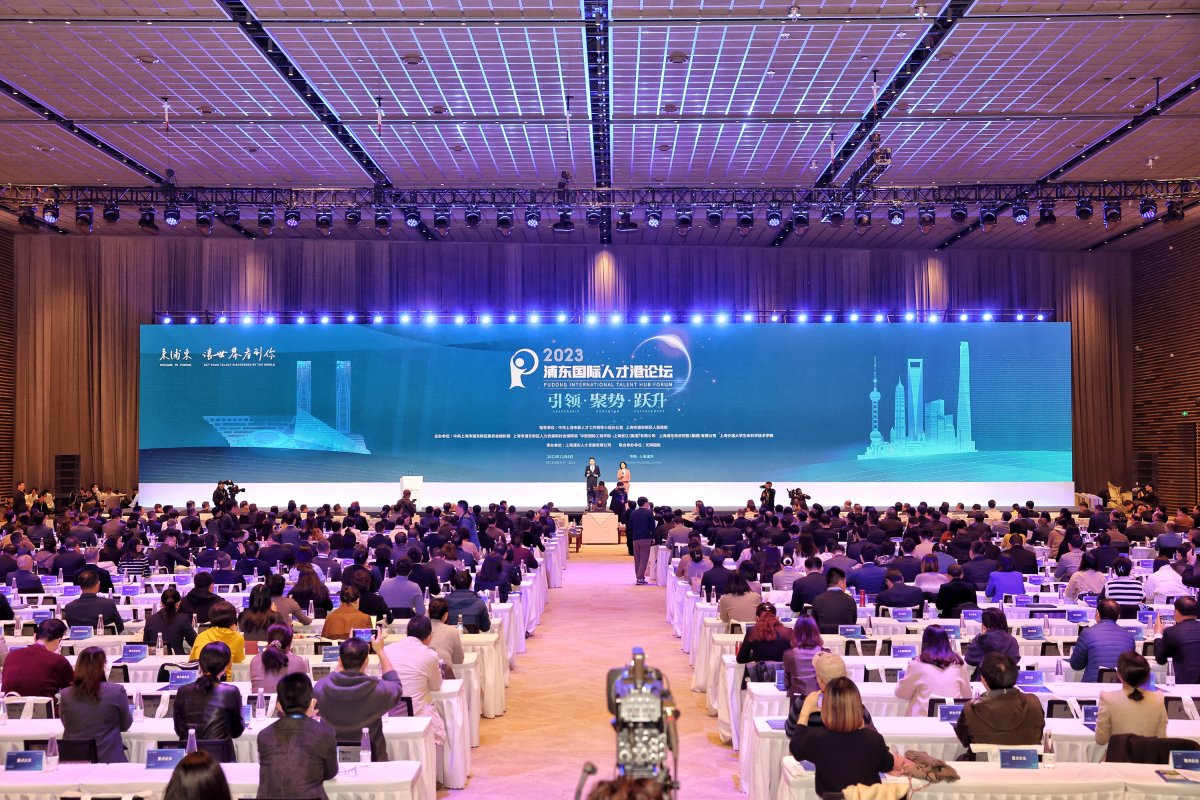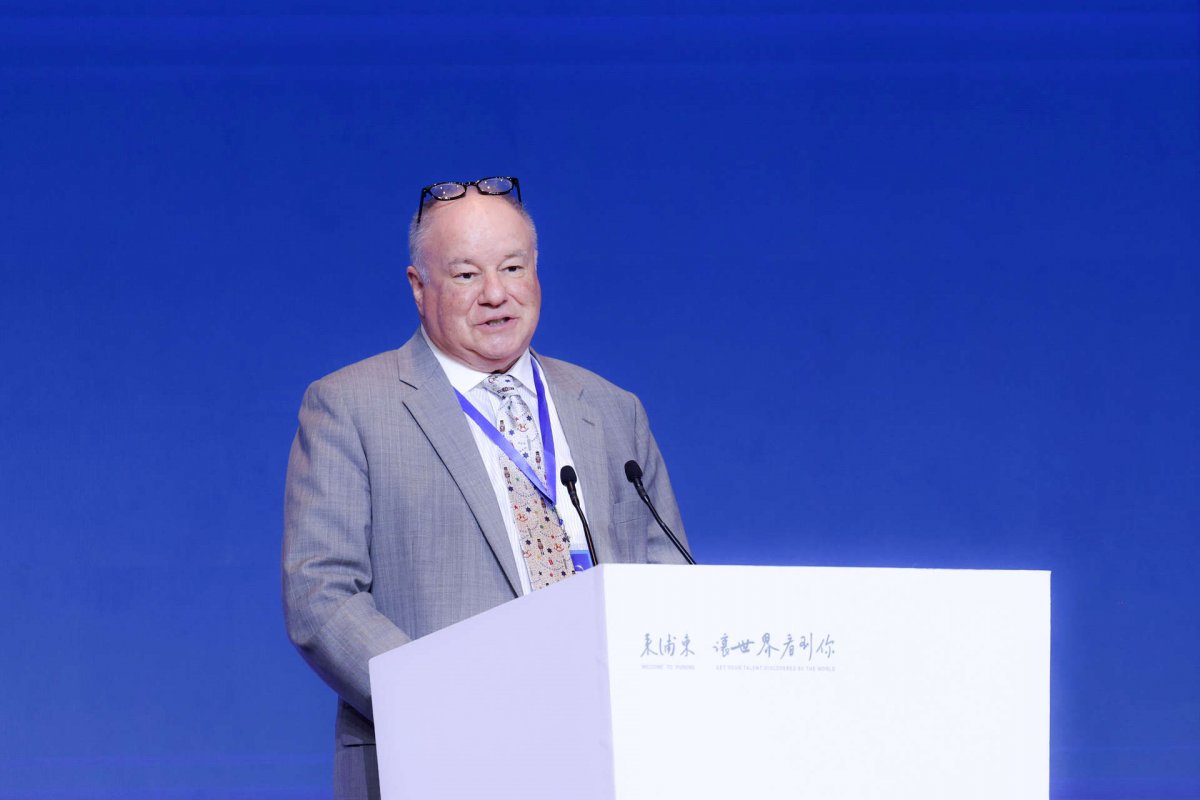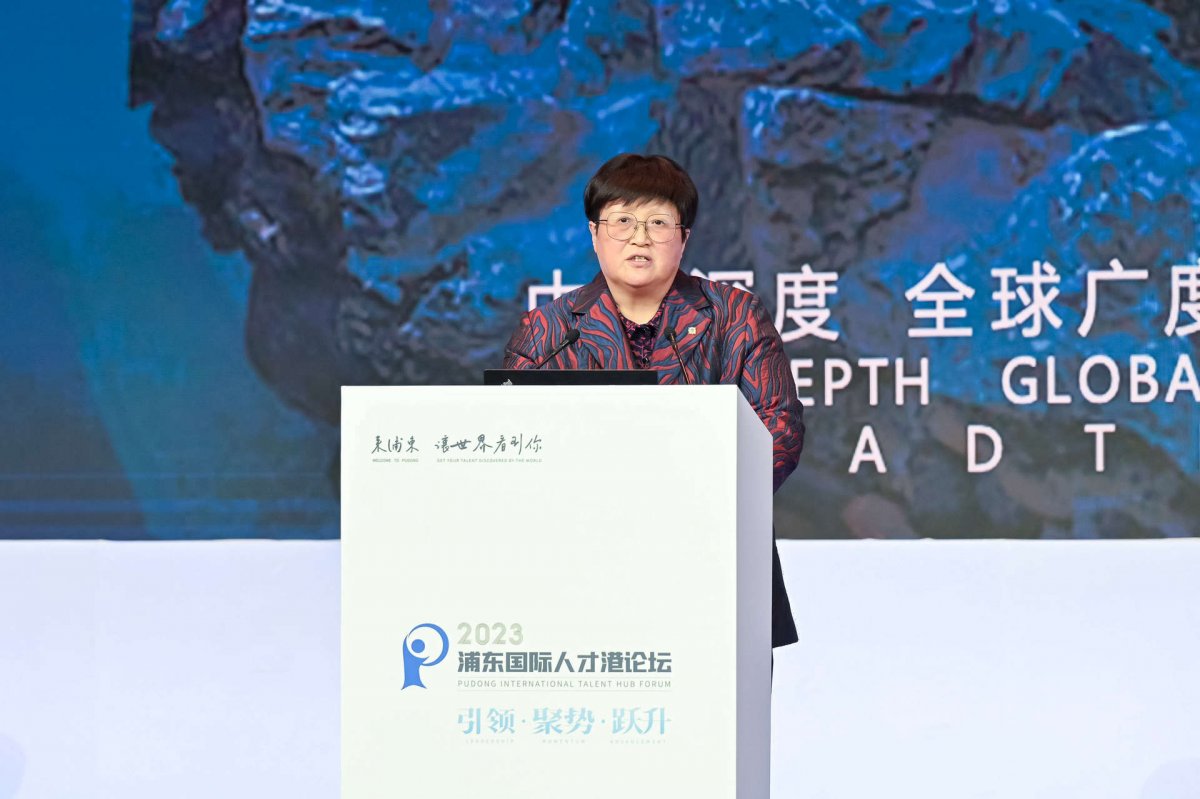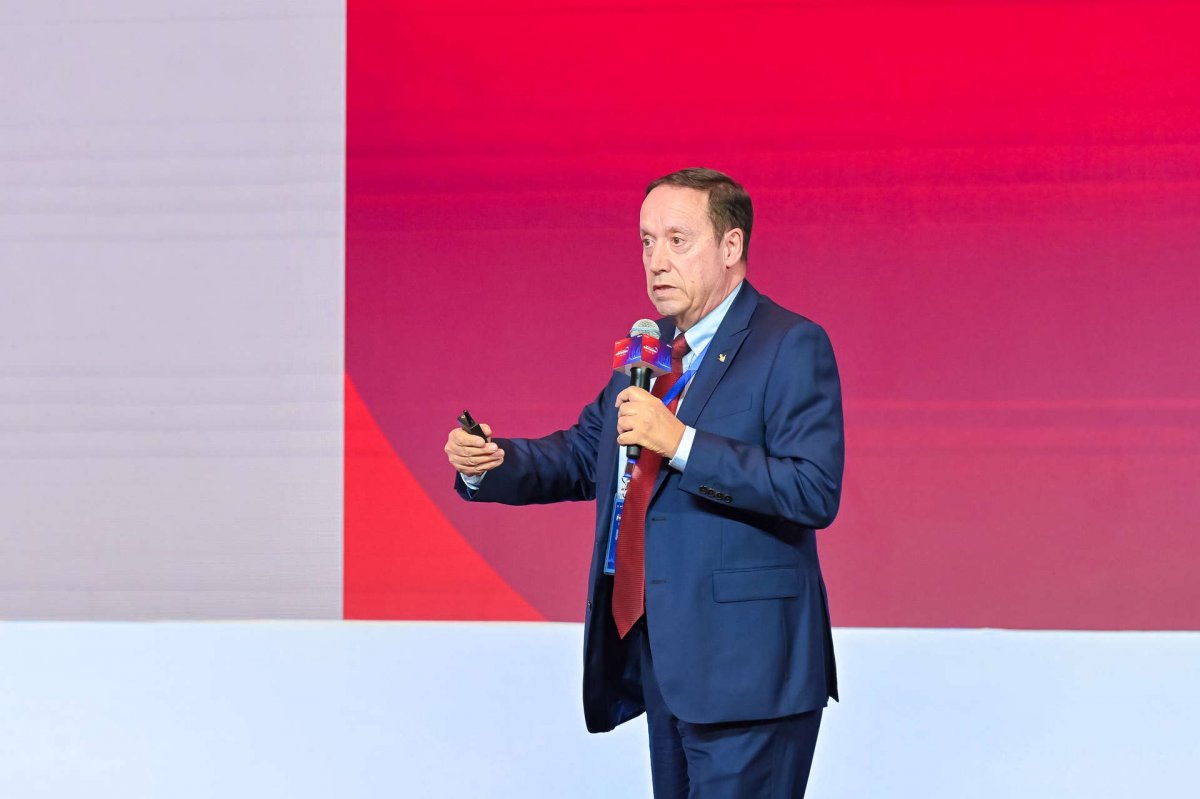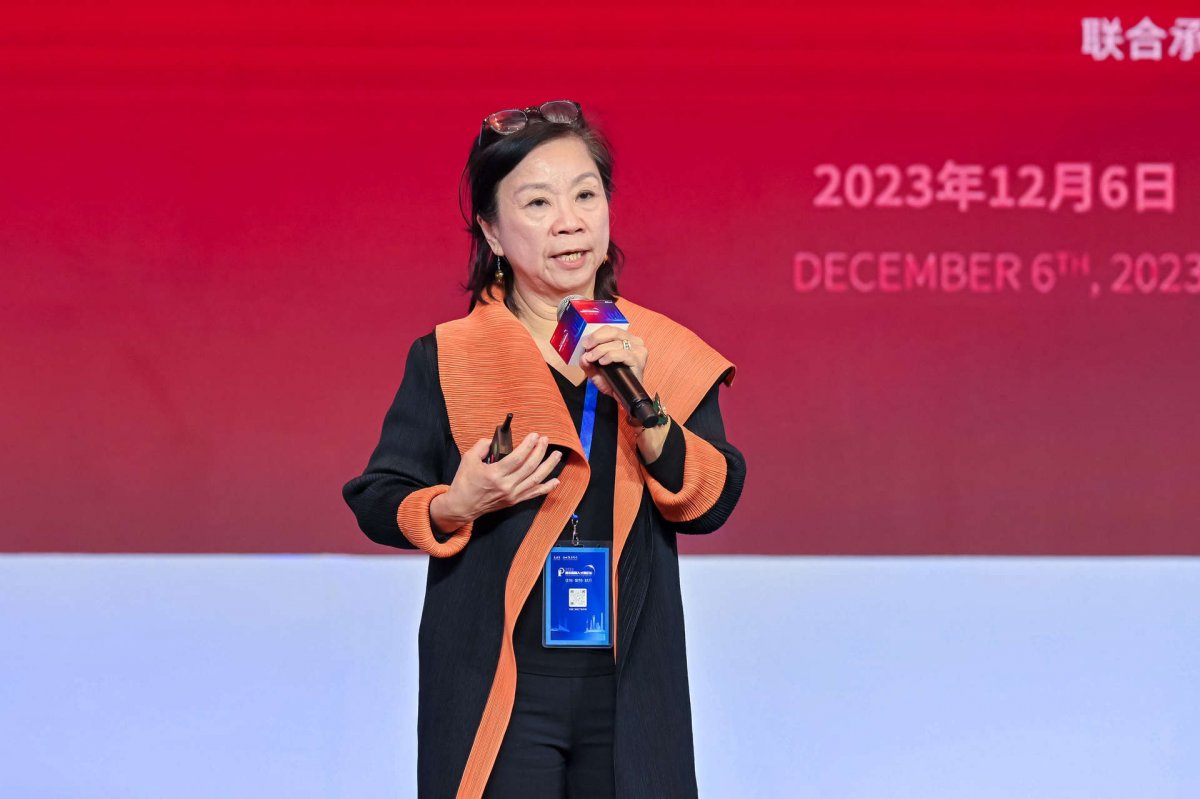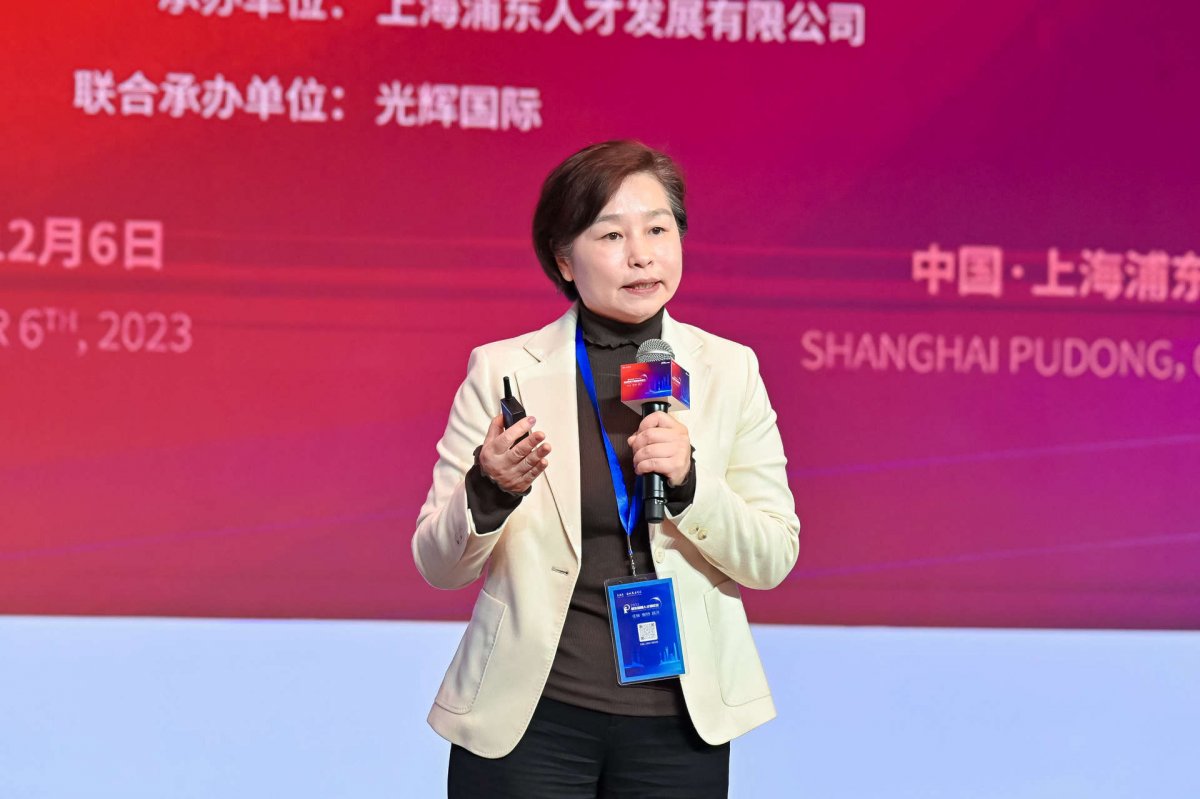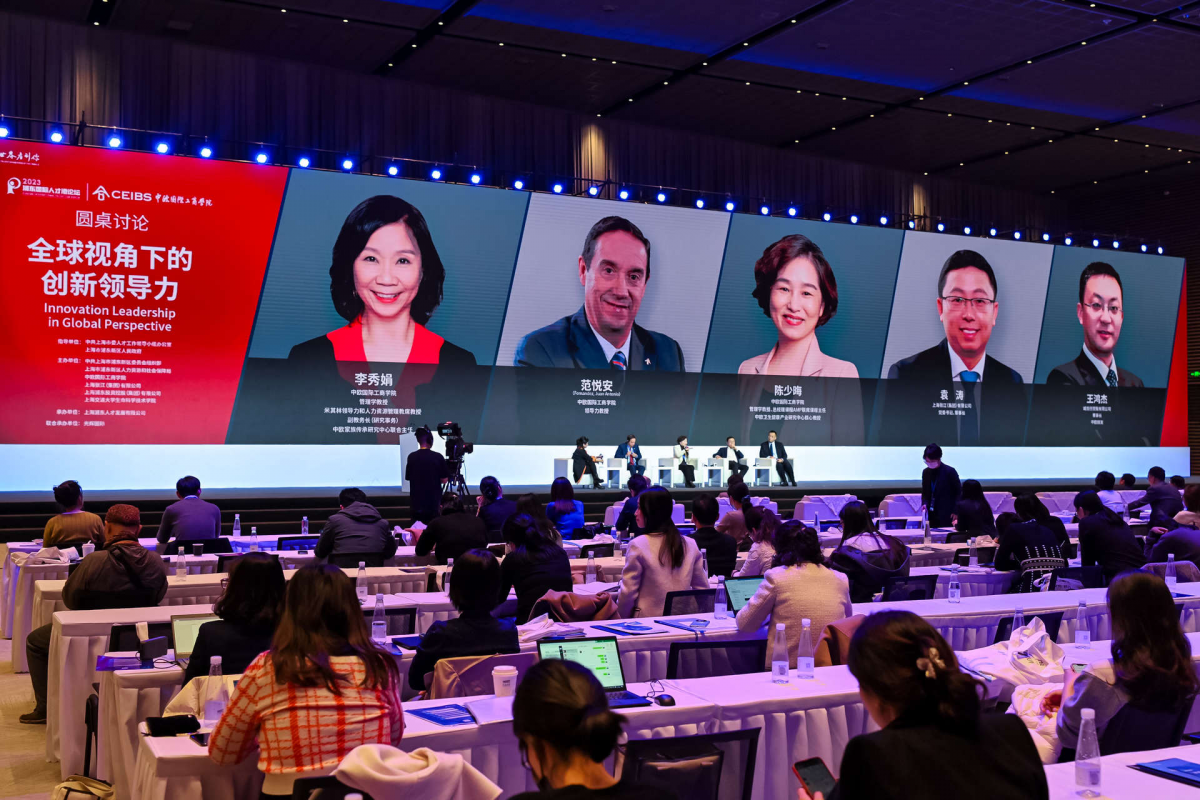International talent forum seeks global perspective on innovation leadership
December 6, 2023. Shanghai – Managing and retaining global talent is essential to reinvigorating the Chinese economy and maintaining companies’ competitive edge following the COVID-19 pandemic, according to CEIBS President (European) Dominique Turpin at the Pudong International Talent Hub Forum 2023 today.
With a focus on Leadership, Momentum, and Advancement, the forum gathered experts, scholars, business leaders, and human resource executives from leading global companies to exchange views on the latest strategies in contributing to the talent development of Shanghai’s Pudong New Area.
According to the IMD World Talent Report 2023, Switzerland ranks first in both investment and development and in talent appeal, followed by Scandinavian countries such as Finland, Sweden and Denmark. This is due to their advantages in quality of life, statutory minimum wage, and primary and secondary education systems. China ranks 41st overall.
“China boasts a competitive advantage in quality of education, tax system to attract global talents, and motivation of staff, but lags behind in the number of recruited foreign talent, cost of living, and public expenditure on education,” Prof. Turpin said, adding that the country could draw lessons from Singapore in terms of talent attraction strategy and local talent cultivation.
“Singapore and Pudong enjoy many similarities, and both governments emphasise the importance of attracting global talent. Singapore's advanced and high-diversity economy, innovation and technology, and flexible working permit and favourable visa policies, have propelled the Southeast nation to being one of the most competitive countries in the world in terms of talent,” he explained.
Prof. Turpin further added that he hopes Pudong can continue to benefit from its international landscape, housing, culture, and quality of life to promote Shanghai as a vibrant destination on par with Singapore, Seoul and Tokyo.
CEIBS President Wang Hong then delivered a keynote speech in which she highlighted the opportunities and challenges that Shanghai faces in becoming a global science and technology hub.
“Shanghai is blessed with a strong foundation of basic research and a favourable innovation environment that attracts innovators from around the world,” President Wang said.
However, Shanghai's quest for scientific and technological innovation faces several critical challenges. “First, Shanghai is relatively underdeveloped in attracting innovative resources and making technological breakthroughs in key areas; second, there’s a deficiency in strategic scientists with international influence, which requires more effort to optimise talent introduction and training mechanisms; third, Shanghai’s influence in science and technology needs to be strengthened to voice and demonstrate leadership prowess in the international arena; fourth, the absence of leading technology firms hinders the potential of the new economy to take the lead. Finally, there is a shortage of high-level talent with an international perspective and an understanding of international rules. To address these gaps, technical talent in crucial fields such as financial technology, intelligent manufacturing, digital economy, integrated circuits, and quantum science need to be cultivated,” she added.
She then put forward five suggestions for talent introduction and cultivation in Pudong, including building a major industrial base to increase the competitiveness of science and technology innovation, attracting high-level overseas talents with favourable systems and services, gathering scientists with strategic perspectives, accelerating the development of emerging industries to drive innovation, and promoting the opening up of Shanghai to the outside world.
Also addressing the forum, CEIBS Professor Emeritus Juan Fernandez discussed how to encourage organisations to be more innovative. He noted that three factors are crucial in facilitating innovation within a company: norms and systems, talent, and leadership.
“It's not about investing money, but about organisational culture. Employees should have a sense of psychological safety and be motivated to innovate and express themselves freely without being penalised for doing so,” Prof. Fernandez said.
A functioning organisation should also have a positive and inclusive company culture and be equipped with the right norms and systems to ensure smooth communication between different seniority levels of employees, he added.
CEIBS Professor of Management Jean Lee then took to the stage and pointed out that high-calibre international talent should possess a global mindset, cross-cultural management skills, global leadership skills and, most importantly, a strong culture quotient (CQ), an ability to relate and to work effectively across cultures that can be adapted in both individual and workplace settings.
“Cross-cultural team leaders must have a high level of global identity and be aware of culture status when interacting with people from different backgrounds. Such intercultural competence can be cultivated through learning and experience,” she suggested.
Later, CEIBS Professor of Management Practice Sophie Chen told the audience that management innovation lies not on an individual level but in an organic combination of the decision-making level, the executive level, and the operational level of the organisation.
“Only when every employee unleashes their innovative abilities can enterprises stay at the forefront in a competitive market by effectively leveraging human capital,” Prof. Chen said, adding that conceptual thinking, organisation development, and talent systems remain the cornerstone in management innovation.
The event also featured an engaging roundtable discussion led by Prof. Lee with panellists sharing their thoughts on the theme of Global Perspectives on Innovation Leadership.
Two awards, "Best Organisation to Work at 2023" and "The Most Potential Overseas Returnees 2023" were presented at the event.
Initiated in 2021, the Pudong International Talent Hub Forum serves as an open and inclusive platform for participants to exchange ideas and experiences, thereby facilitating talent development and innovation in Shanghai’s Pudong New Area.







